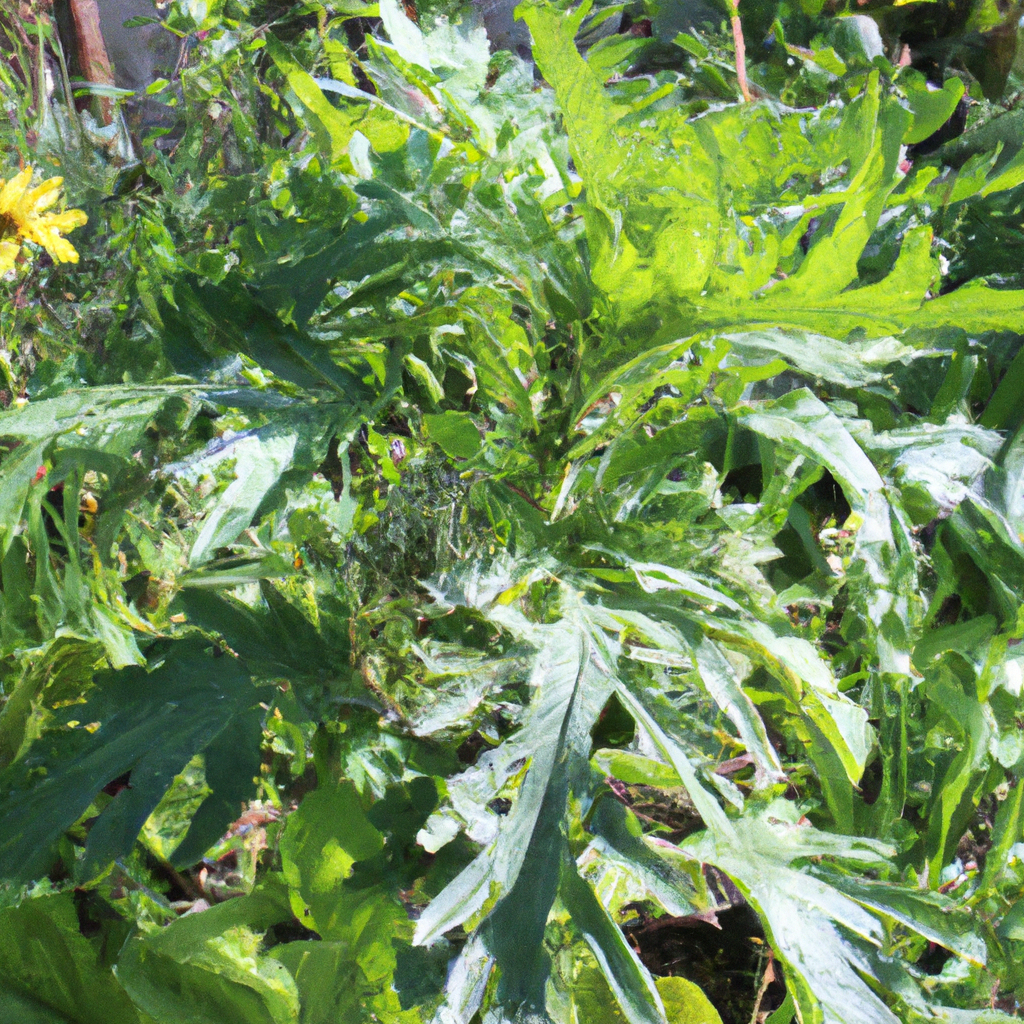Biological Name:
Mugwort – Artemisia vulgaris
Natural Habitat:
Mugwort is a type of flowering plant that is native to Europe, Asia, and North America. It can be found in a variety of habitats, including meadows, fields, and along roadsides.
Description:
Mugwort is a type of flowering plant that is commonly found in fields and other grassy areas. It is a member of the Asteraceae family which also includes plants such as daisies and sunflowers. Mugwort is an annual or perennial plant that produces small white or yellow flowers and clusters of seeds. The plant is often used as a cover crop to improve soil health and suppress weeds. It is also known for its ability to tolerate a wide range of growing conditions including wet or dry soils. In some areas mugwort is considered a weed because of its ability to invade cultivated areas and cause allergies and other health problems.
Frequently Asked Questions (FAQs)
Q: Is it healthy to smoke mugwort?
A: While it might be less harmful than cigarettes and other chemically processed substances, smoking mugwort can harm the lungs. According to the American Lung Association, the combustion of cannabis or any smokable herb may contain many of the same toxins, irritants, and carcinogens as tobacco smoke.
Source
Q: Will mugwort make me high?
A: Mugwort looks similar to weed, but has its own personality as an herb to be reckoned with. Mugwort won’t get you high like Cannabis, but well let’s just say that you will remember your dreams when you smoke Mugwort.
Source
Q: Can you get a buzz from smoking mugwort?
A: Mugwort (Artemesia vulgaris) Herbal Properties: Many ancient cultures smoked mugwort to promote vivid dreams. It also produces a very mild psychotropic effect while you’re awake.
Source
Q: Is mugwort poisonous to humans?
A: Also, mugwort contains a substance called thujone, which can be toxic in large amounts. The amount present in the herb itself is little enough that experts generally consider it safe to use.
Source
Q: What happens if you smoke mugwort by itself?
A: They burn well. Mugwort can easily be smoked on her own. She has a lightly floral, bitter flavor. Mugwort can give some folks lucid dreams, and it is a go-to herb for people who are actively trying to have more vivid or lucid dreams.
Source
Q: Can mugwort be used as a drug?
A: Historically, mugwort has been used in traditional systems of medicine in different parts of the world. Today, mugwort taken orally (by mouth) is promoted for digestive problems, irregular menstruation, and high blood pressure. It is also promoted as a sedative, laxative, and liver tonic.
Source
Q: Is mugwort cancerous?
A: Several test-tube studies show that mugwort could have powerful cancer-fighting properties. For example, in one test-tube study, mugwort extract killed and prevented the spread of colon cancer cells ( 2 ). Another test-tube study found that mugwort essential oils induced cell death in leukemia cancer cells ( 3 ).
Source
Q: Who shouldnt use mugwort?
A: Do not use mugwort if you are: allergic to the Asteraceae or Compositae (daisy) family of plants, which includes ragweed, chrysanthemums, marigolds, daisies, and chamomile. allergic to birch, cabbage, grass, hazelnut, olive pollen, honey, mustard, royal jelly, sweet bell pepper pollen, tobacco, and sunflower.
Source
Q: What does mugwort do to humans?
A: People take mugwort root as a “tonic†and to boost energy. People take the rest of the plant for stomach and intestinal conditions including colic, diarrhea, constipation, cramps, weak digestion, worm infestations, and persistent vomiting. Mugwort is also used to stimulate gastric juice and bile secretion.
Source
Q: What are the dangers of mugwort?
A: What are the side effects of mugwort? Mugwort can cause allergic reactions leading to sneezing and sinus-related symptoms, and it can cause contact dermatitis, or rashes, in some people. In the United States, mugwort is sold as a dietary supplement and homeopathic preparation, and is considered safe for most people.
Source
Q: Is mugwort a drug?
A: Historically, mugwort has been used in traditional systems of medicine in different parts of the world. Today, mugwort taken orally (by mouth) is promoted for digestive problems, irregular menstruation, and high blood pressure. It is also promoted as a sedative, laxative, and liver tonic.
Source
Q: Is mugwort good for anxiety?
A: People use mugwort for anxiety, irregular periods, colic, insomnia, and many other conditions, but there is no good scientific evidence to support these uses. Don’t confuse mugwort with plants with similar common names, including Artemisia herba-alba, tarragon, wormseed, and wormwood.
Source
Q: What does mugwort do to the uterus?
A: Mugwort is also associated with menstruation. It increases circulation to warm up the uterus and pelvic region, move the blood, remove stagnant blood (the source of cramps, stiffness and pain) and regulate hormone levels.
Source
Q: Can I drink mugwort tea everyday?
A: For the daily dosage of mugwort tea, you can drink it up to 3 ~ 4 times a day. It would be better if you drink on an empty stomach before meals because it will absorb well and can be expected to be more effective. Don’t drink all at once, but drink diligently to avoid displeasing side effects.
Source
Q: What is mugwort called in India?
A: Artemisia vulgaris – mugwort is a potential anti cancer herb of Ayurveda, used for the treatment of skin diseases, constipation, diseases of the liver, diseases of the neuro muscular condition (vataja roga) and respiratory diseases. It is called Damanaka in Sanskrit.
Source
Q: What do Koreans use mugwort for?
A: In Korea, mugwort is regarded as a healing herb for its antibacterial, anti-fungal, and skin-protective properties. Known as ssuk (ì‘¥), legend has it that mugwort was behind the creation of the first Korean dynasty, according to Jenelle Kim, an herbalist.
Source
Q: Is mugwort a tobacco?
A: Mugwort, also known as Sailor’s Tobacco, is a great smokable herb that is a natural nicotine-free tobacco alternative. It’s also a great ingredient we like to use in some of the premium herbal rolling fillers you’ll find in our shop, an ecofriendly way to smooth out and save money on your favorite expensive legal herb.
Source
Q: Why is mugwort tea good?
A: Anti-anxiety, depression: Flavonoid plant compounds in mugwort have the effect of improving restlessness, anxiety, helping to improve mood. Reduce stress, thereby combating anxiety and depression effectively.
Source
Q: What does mugwort smell like?
A: Its leaves have a silvery fuzz on their underside and it has a sage-like smell and slightly bitter taste.
Source

